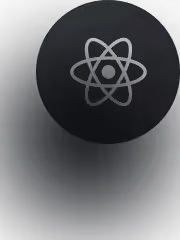How a Nordic startup built an MVP in 4 weeks with Product Discovery & Agile process

Project overview
Follow the exciting journey of a startup that used product Discovery Workshop and a collaborative process to achieve the impossible: build a sound and fully operational MVP in just 4 weeks.
Players Plug
5 experts, 4 weeks
Inside this article
Goal
Building a fully operational MVP in 4 weeks to validate a business idea was a major challenge of this project.
Having built successful sports careers in the United States and Europe, Karl Otabor, and Finn Badou Jor — two Players Plug’s founders — wanted to create a solution that would improve the recruitment experience for the next generation of players and coaches.
Before, athlete recruitment was often done behind the scenes and was mainly accessible to those with connections. The founders aimed to change that by making the process more transparent.
Here’s a story of an ambitious sports startup that wanted to validate it’s grand product idea with an MVP built in 4 weeks.
Scope of work
- Discovery Workshop
- Business Analysis
- UX/UI Design
- Digital Product Development
- Web App Development
- Mobile App Development

Challenges
To initiate product development, we had to define market’s problems and needs and define, how to succeed where competitors failed.
Players Plug founders were aware that some companies had already attempted to digitize the athlete scouting process, but none had reached a larger audience.
There were two possibilities:
- Market was not ready for the digital solution.
- Users’ needs weren’t addressed correctly.
What was the case?
To find that out Players Plug team needed to build an MVP and validate it with the market.
Approach
We desided to build a cross-functional, self-organized team to support the collaborative Agile process
If you're looking for fast results, Agile approach is a valuable ally.
This methodology relies on cross-functional, self-organizing teams that can respond quickly to any changes or issues that may arise during the project.
Our cross-functional team was made of:
- 1x Business Analyst — responsible for co-leading the Discovery phase, clarifying business requirements and maintaining the product backlog,
- 1x UX/UI Designer — accountable for co-leading the Discovery phase, designing user flows, information architecture, and interfaces to address users' needs and pain points,
- 2x Full Stack Developers — in charge of technical advisory, implementing the product, conducting code reviews, and testing,
- 1x Scrum Master — responsible for overseeing the process, identifying and removing bottlenecks and ensuring smooth collaboration.
Each team member brought their unique perspective and expertise, actively facilitated workshops, engaged in discussions with stakeholders, and influenced decisions made throughout the process.

Defining product’s vision and priorities with product Discovery Workshop
Having picked our players, we moved onto the strategic phase.
First, the entire team got together with stakeholders on a Product Discovery workshop to define our:
- market niche and positioning,
- target user groups & their needs,
- business goals and risks,
- product’s vision,
- product’s scope,
- development roadmap.

During this phase we identified that our MVP needed:
- a player flow — a way for athletes to create, edit and keep their accounts up to date with new information,
- a recruitment flow — a way for coaches to create accounts, search through the player database, and message the chosen talents,
- an admin flow — a space for platform administrators to verify users and provide customer support.
The app had to be accessible from both desktop and mobile devices. To make the best use of the available resources we decided to build a responsive web application.

When it comes to the technology stack our Full Stack Developers proposed two languages:
- JavaScript,
- TypeScript.
JavaScript made the final cut as its environment, architecture, and syntax, allowed for faster development.
Create React App was picked for the front end, and Express for the back end.
Using a collaborative Agile process to deliver the product in 4 weeks
At the beginning of the implementation phase, Business Analyst and UX/UI Designer worked together to create a list of requirements that the product needed to meet.
Next, they started to collaboratively design detailed user flows to fit all core use cases (the player flow, the coach flow, and the admin flow), and ensure they stay in line with business goals and technical constraints.
The UX/UI Designer moved on to prototyping after finishing the flows. She worked in an Agile way, making use of short and fast feedback loops with stakeholders and team members. She started with wireframes and then turned them into high-fidelity designs using pre-made components so the developers could release the product quickly and fit the tight deadlines.

During the entire process, the team held weekly Sprint Reviews and ad hoc meetings to get stakeholders’ feedback and gather additional information. The founders supplemented team’s expertise with industry know-how and served as guides to the sports industry.
Only by combining all perspectives were we able to build a product that was both strategically and technically sound.
What we’ve accomplished
Through strong collaboration and the use of Agile process, we were able to successfully deliver a fully operational MVP within the narrow 4-week deadline.
Players Plug founders could now move on to the next phase: validating their business idea with users and determining if the market was ready for the revolution.

















